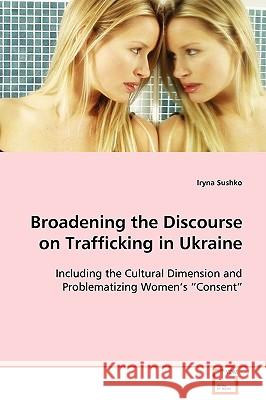Broadening the Discourse on Trafficking in Ukraine » książka
Broadening the Discourse on Trafficking in Ukraine
ISBN-13: 9783639096552 / Angielski / Miękka / 2008 / 72 str.
This research was aimed at broadening the dominant public discourse on trafficking in Ukraine. It was focused on two issues: firstly, on introducing the cultural dimension of trafficking, which has been emphasized but not sufficiently studied in the existing literature and, secondly, on problematizing the binary approach taken in the public discourse in Ukraine of consensual migration vs. non consensual trafficking. For this purpose the interviews conducted by the anti-trafficking NGO La Strada with 23 trafficked women upon their arrival have been analyzed. The content analysis, used as a main tool of research, has shown that first, apart from economic factors that shaped these interviewed women s decision to leave Ukraine there was also a cultural dimension that included legacy of socialist ideology, the post-1991 transitional period with import of western glamour, psychological climate in the family, etc. Second, the analysis of the interviews has shown that in all cases 23 trafficked women did give their express consent to traffickers either verbally or in a written form and thus it has shown that trafficking could be a voluntary act."
This research was aimed at broadening the dominant public discourse on trafficking in Ukraine. It was focused on two issues: firstly, on introducing the cultural dimension of trafficking, which has been emphasized but not sufficiently studied in the existing literature and, secondly, on problematizing the binary approach taken in the public discourse in Ukraine of consensual migration vs. non consensual trafficking. For this purpose the interviews conducted by the anti-trafficking NGO La Strada with 23 trafficked women upon their arrival have been analyzed. The content analysis, used as a main tool of research, has shown that first, apart from economic factors that shaped these interviewed women’s decision to leave Ukraine there was also a cultural dimension that included legacy of socialist ideology, the post-1991 transitional period with import of “western glamour”, psychological climate in the family, etc. Second, the analysis of the interviews has shown that in all cases 23 trafficked women did give their express consent to traffickers either verbally or in a written form and thus it has shown that trafficking could be a “voluntary” act.











